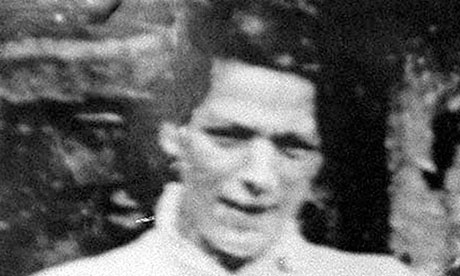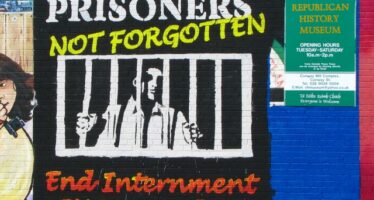US court says IRA member’s secret testimony can be handed over to police
![]()
Testimony given to US college oral history project by IRA bomber Dolours Price may shed light on murder of Jean McConville
Henry McDonald, Ireland correspondent
 J
J
ean McConville pictured shortly before she disappeared in 1972. Photograph: Reuters
Secret testimony from an IRA woman who bombed the Old Bailey can now be handed over to the Police Service of Northern Ireland as part of its investigations into one of the most controversial murders during the Troubles, a US court has ruled.
In the ongoing battle between academic freedom and demands for justice from the families of those killed by the IRA in the conflict, a United States appeal court has found that the PSNI can seize tapes from the ex-IRA bomber Dolours Price.
The ruling over the weekend has sparked fears among historians and journalists behind the Belfast Project for Boston College that all of their confidential archive of IRA and loyalist paramilitary activists is now vulnerable.
Ex-IRA and loyalist paramilitaries agreed to give open and frank accounts of what they did during the Troubles – including murders – on the understanding that the material would only be released when they died.
Those behind the project including its director, the award-winning journalist and authority on the IRA Ed Moloney, expressed concern that the latest decision puts the life of his key researcher, ex-IRA prisoner Anthony McIntyre, at grave risk.
The Guardian has also learned that as a result of the US justice department’s pursuit of the Price interviews, police officers, soldiers and spies who fought the IRA have pulled out of a proposed parallel project potentially involving a London-based college.
The members of the security forces, including the Garda Síochána as well as the old Royal Ulster Constabulary, were prepared to shed new light on the secret war against the IRA.
The PSNI is seeking an interview Price gave the Boston College research team that is understood to focus on the abduction, murder and secret burial of Jean McConville in 1972. She was one of the most high profile of the IRA’s “disappeared” – those victims accused of being informers who were secretly buried during the Troubles.
Her family claims that if the PSNI gains access to the taped interview with Price it may shed new light on their mother’s disappearance and possibly even implicate the president of Sinn Féin, Gerry Adams. The family claims that Price’s testimony contains allegations about her part in the abduction and that of Adams’s alleged role as second in command of the Belfast IRA at the time of McConville’s disappearance.
Only one testimony from the Belfast project has been made public so far: the archive of IRA Belfast commander Brendan “Darkie” Hughes. His testimony alleged that Gerry Adams had set up the secret IRA unit tasked with killing McConville and to avoid adverse publicity for the republican movement ordered that she be buried in secret. The IRA had accused her of being an informer for the British army.
Adams has consistently denied allegations concerning McConville or ever being a member of the IRA.
McConville’s daughter Helen McKendry and her husband, Seamus, have welcomed the PSNI’s attempt to use the extradition arrangements between the UK and the US to obtain the material, and the latest court ruling that brings the material closer to the inquiry on this side of the Atlantic.
“If it helps build a case that came to court and reveal the truth about what happened to Jean we support that,” the couple told the Guardian.
“How would Americans feel if a college in Oxford or Cambridge had interviewed al-Qaida members about the murder of American citizens or soldiers, and then this institution resisted handing over that intelligence to the US authorities? That is the argument we are making on the American airwaves this week,” they added.
Controversy surrounds an interview Price gave to a Belfast-based newspaper in which she admitted being part of the Belfast Project.
In that interview, which her family believes should never have been published give that Price was in ill health at the time, the ex-IRA bomber claimed she drove the car that took McConville from her home in west Belfast to an isolated location on the County Louth coast in the Irish Republic, where she was shot dead and secretly buried.
Dolours Price came from a prominent Belfast republican family and, along with her sister Marian and current Stormont minister Gerry Kelly, bombed the Old Bailey in 1973. The attack marked the start of the Provisional IRA’s campaign in Britain.
Marian Price is now in a prison hospital after falling ill while on remand for charges relating to aiding the Real IRA.
Related Articles
Report says rampant sectarianism in North of Ireland’s jails
![]()
Catholics prisoners in the Six Counties are far more likely to be subjected to violence (or prison ‘discipline’) than their
The Prison Service in the Six Counties has said it is to release some prisoners in order to “relieve pressure” on the justice system
![]()
Significantly, no political prisoners are to be released.
Finucane’s wife quits Downing St meeting over QC review plan
![]()
Belfast defence lawyer Pat Finucane was murdered in 1989 The widow of murdered Belfast defence lawyer Pat Finucane said today



